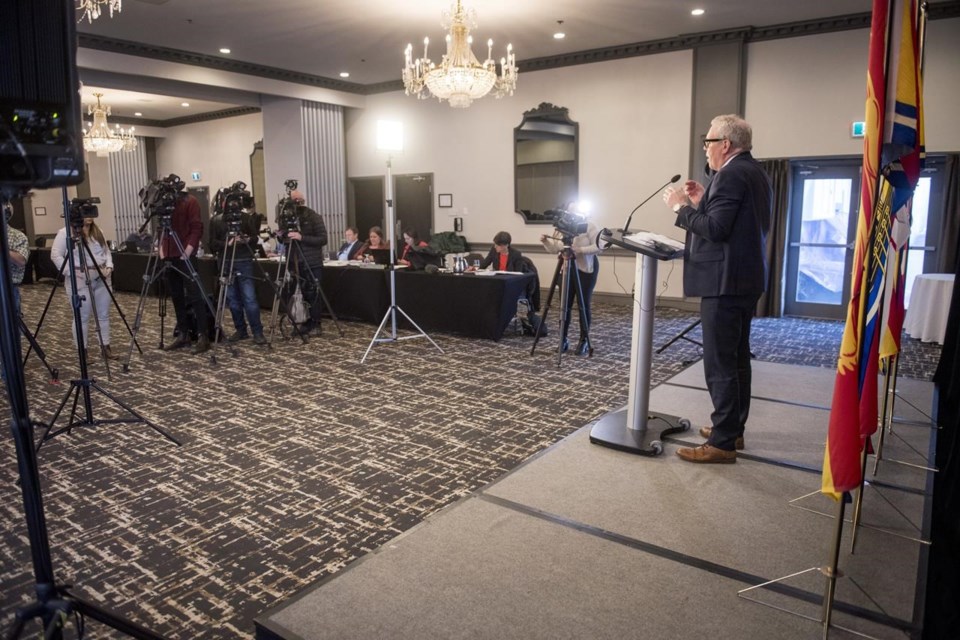ST. JOHN'S, N.L. — Atlantic Canada is home to the lowest social assistance rates in the country, and advocates say provincial budgets presented this week didn't do much to change that.
Robert MacKay said the modest increases to income assistance in New Brunswick's provincial budget won't make much of an impact on him. The community co-chair of the New Brunswick Common Front for Social Justice said he gets about $593 a month through the program, which he said isn't enough to cover basic food and living expenses.
The increase in Tuesday's budget works out to about $40 a month, leaving him "barely treading water."
"Right now, people, myself included, are just rubbing two nickels together at the end of the month — if that — living in rooming houses, that sort of thing, just to stay within any kind of a budget," MacKay said in an interview Friday.
A report from Toronto-based anti-poverty organization Maytree shows that New Brunswick and Nova Scotia had the lowest social assistance rates in the country in 2021. New Brunswick offered the lowest rates: a single person considered employable received about $7,500 a year, and a single person with a disability made about $10,300. In Nova Scotia, a single employable person received about $8,400 a year, and a single person on disability got $11,560.
The poverty line in New Brunswick sits at around $22,400 for a single person, the Maytree report said.
With climbing food prices, MacKay said he's relying on credit to supplement his social assistance cheques. When he's able to work, he uses his wages to pay down debt.
Janelle LeBlanc, also with the New Brunswick Common Front for Social Justice, described the province's social assistance rates as "inhumane."
"People are living in extreme poverty," she said. "You can't live on that."
Alec Stratford, chair of the Nova Scotia Action Coalition for Community Well-Being, said it was "socially and fiscally reckless" for the Nova Scotia government not to include social assistance increases in its budget Thursday.
The government's decision to keep rates constant when the cost of living is soaring "increases despair" for those relying on social assistance, he said.
"I think it reinforces their belief already that nobody cares," he said in an interview Friday. "It increases stigmatization and isolation."
Low social assistance rates end up costing the province in other ways, because people living in poverty often require other government-funded services, Stratford said.
Both groups would like to see governments increase social assistance rates to match the poverty line.
This report by The Canadian Press was first published March 24, 2023.
Sarah Smellie, The Canadian Press



